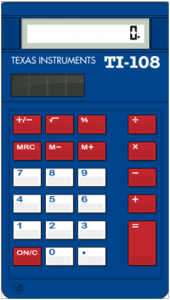June 29, 2015, by studentcontributor
Some tips for the UKCAT
 With the UKCAT coming up soon, we thought we’d repost a quick reminder of what to expect!
With the UKCAT coming up soon, we thought we’d repost a quick reminder of what to expect!
Hi, it’s TJ again, and today I’m going to give some quick tips on yet another part of the admissions process: the UKCAT.
Hopefully you’ve already found out if you need to take the UKCAT and booked yourself a slot but if not, try and do it as soon as possible! It’s great to get it out of the way in summer so you’re not stressing later on 🙂
Key facts
- Registration (via UKCAT website): 1 May – 22 September 2015
- Sit the test (at a Pearson test centre): 1 July – 6 October 2015
- Registration fee (bursaries available): £65 before the 31st of August, £80 after this
- Specify special educational needs or access requirements when registering
- 5 sections (used differently by each uni so find out about the ones you’ve chosen):
1. Verbal Reasoning
2. Quantitative Reasoning
3. Abstract Reasoning
4. Decision Analysis
5. Situational Judgement
Most people start preparing for the UKCAT 3-4 weeks before their test date. Here are some ways to prepare:
Books
These can be really helpful to find out what strategies work for you and have a go at lots of practice questions with answers. Try and get as recent a copy as possible as the UKCAT does change a little each year. The one I used was “Get into Medical School – 600 UKCAT Practice Questions” but have a look around to see what works best for you!
Online
There is plenty of help online, ranging from a few free practice questions, to full mock tests, to lengthy articles explaining some of the more difficult problems. Have a Google and see what you can find 🙂
Courses
There are a lot of companies offering courses which promise to help you pass the UKCAT. I would be wary of these as they are often pretty pricey, and don’t necessarily offer much more of an advantage. However, have a look at what’s available and make up your own mind!
General advice and tips for each section
 One of the most challenging things about the UKCAT is the time pressure – I didn’t manage to answer all the questions in my exam so if you’re really struggling, flag the question and move on! The more you practise, the quicker you will get 🙂 Also, try and use multiple-choice tactics: eliminate as many answers as possible and if you really don’t know, guess.
One of the most challenging things about the UKCAT is the time pressure – I didn’t manage to answer all the questions in my exam so if you’re really struggling, flag the question and move on! The more you practise, the quicker you will get 🙂 Also, try and use multiple-choice tactics: eliminate as many answers as possible and if you really don’t know, guess.
- Verbal: Learn to skim read and get your head around the difference between True, False and Can’t tell
- Quantitative: Practise some numerical questions using the online calculator which you will have to use in the exam and get as quick as possible with GCSE maths calculations such as percentages
- Abstract: Have your own systematic approach for all the different possible rules eg. Shapes, Colour, Angles, Number
- Decision: Again, find an approach which works for you, and look up words you don’t know in a dictionary
On the day
- Make sure you’ve eaten and are well hydrated before the exam as you can’t leave during it
- Remember your photographic identification and confirmation email
- You get your results straight away so after you’ve calmed down and celebrated finishing, check how you’ve done against what the unis you want to apply to are looking for
If you want more information or advice, here are some websites I found useful:
- www.ukcat.ac.uk – it’s really important to visit the official website and look through their advice and practice tests
- www.wamsnottingham.com – have a look at our presentation for more general advice or try the practice questions
- www.brightlinks.org – the knowledge bank has lots of resources which are quick and easy to read
- www.thestudentroom.co.uk – this has plenty of tips and many people also post their results, but don’t let these scare you too much!
Finally, make sure you enjoy your summer too!

Nice article.
Having been through medical school in the UK I can testify as to how much hard work it is. Although problem solving skill are essential in medicine, time after time I still find that a lot in medicine relies on factual knowledge. The best learning method I’ve found is the active recall (flash cards) and distributed practice method (repeat testing over time) – there are all sorts of Apps and websites which can help with this eg. http://mem-note.com
really nice post. you have shared some amazing info about UKCAT. Thanks you very much for sharing this with us.